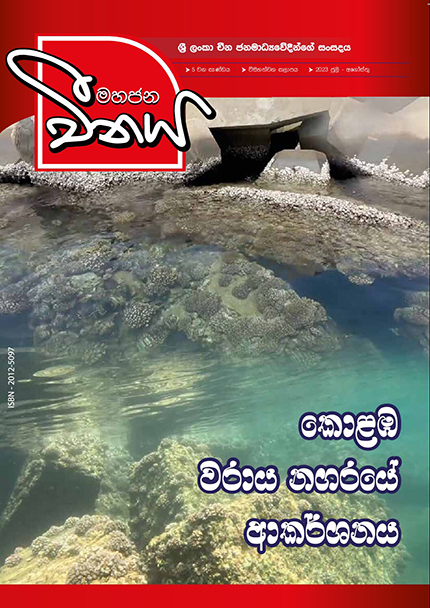The Association of Southeast Asian Nations (ASEAN) Regional Forum Senior Officials’ Meeting (ARF SOM) was held via videolink on July 21, 2020. Sri Lanka is a member of ARF.
Luo Zhaohui, Vice Foreign Minister of China expressed, the ARF is the most important multilateral security dialogue and cooperation platform in Asia Pacific and it has been playing a significant role in maintaining regional peace and stability since it was established 26 years ago. The ARF is currently undergoing a critical transition from confidence-building measures to preventive diplomacy. The ARF should continue to uphold the principles of political guidance and consensus, and strengthen cooperation in non-traditional security areas, so as to create a sound environment for regional peace, stability, development and prosperity.
On cooperation in COVID-19 response, Luo Zhaohui said, under the strong leadership of President Xi Jinping, China has made major strategic achievements in epidemic prevention and control. At present, while preventing imported infections and epidemic rebound at home, China has witnessed the full resumption of work and production as well as economic recovery. To prevent and control the epidemic, China has shared timely experience with and provided assistance to the international community and countries in the region, and informed the World Health Organization (WHO), making a significant contribution to the international effort against the epidemic. China will continue to strengthen cooperation with countries in the region for an early victory against the epidemic.
Luo Zhaohui said, some countries, out of political needs, improperly responded to the COVID-19 epidemic with chaotic measures, and neglected people’s lives and security, causing serious consequences for themselves and the world at large. Some countries even pulled out of the WHO when the international community was in great need of solidarity to combat the epidemic. Some countries politicized the origin of the coronavirus and ignored scientific results to trigger conflicts. Some countries ignored the overall situation of the fight against the epidemic, deliberately created chaos and undermined the stability of the South China Sea. We firmly condemn such behaviors.
On the South China Sea issue, Luo Zhaohui expressed, freedom of navigation has never been a problem in the South China Sea, and not a single merchant ship is threatened in the South China Sea. Some countries outside the region conducted large-scale military exercises in the South China Sea, and they are the real threat to freedom of navigation and regional peace and stability. China will never accept the South China Sea arbitration. The recent statements made by the United States (US) on the South China Sea attempt to deny China’s sovereignty over and interests in the South China Sea, and to incite to form an anti-China alliance. These attempts are doomed to failure. China is a contracting party to the United Nations Convention on the Law of the Sea (UNCLOS) and has always abided by it. The US refuses to accede to the UNCLOS and is not qualified to judge China under the guise of safeguarding the UNCLOS. China’s position on the South China Sea issues has always been consistent. China is ready to work with ASEAN countries to comprehensively and effectively implement the Declaration on the Conduct of Parties (DOC) in the South China Sea, and push for the early conclusion of the consultations on the Code of Conduct in the South China Sea, in a bid to safeguard peace and stability in the South China Sea.
On national security legislation for Hong Kong, Luo Zhaohui stressed, Hong Kong is China’s Hong Kong, and national security legislation for Hong Kong is China’s internal affairs. The Chinese side never interferes in other countries’ internal affairs and other countries should also abide by the fundamental principles of international law including the UN Charter and do not interfere in China’s internal affairs.
Russia and most Southeast Asian countries held that peace and stability in the South China Sea should be maintained and relevant divergences should be resolved by the countries concerned in the South China Sea through friendly consultations. They expressed the support for Hong Kong’s national security legislation and the opposition to the interference in other countries’ internal affairs.
All parties at the meeting appreciated the role of the ARF, and believed that the ARF should further focus on confidence-building measures, and enhance practical cooperation for an effective response to the security challenges in the region. All parties also discussed the cooperation initiatives in the next stage and exchanged views on the ARF’s mechanism building, and international and regional topics of common interest.
Established in 1994, the ARF has 27 members, including 10 ASEAN countries, China, Russia, the US, Canada, Japan, India, Pakistan, the European Union, Australia, and New Zealand.



